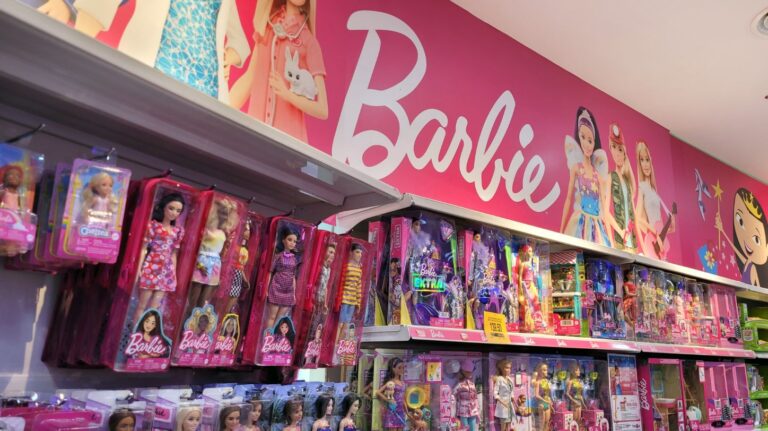In its Q4 2024 earnings call, toy manufacturer Mattel’s chairman and CEO, Ynon Kreiz, addressed the ongoing trade war between the US and China as he discussed the company’s supply chain and priorities for the year ahead.
Mattel is one of the biggest toy manufacturers in the world, producing products across a range of well-known brands including Barbie, Hot Wheels and Fisher-Price.
On the earnings call, Kreiz touched on the potential impact of US president Donald Trump’s recent tariffs, and China’s retaliatory tariffs. He said: “Our 2025 priorities are to grow the top and bottom line, while increasing investment in our digital game self-publishing business to drive long-term growth, in line with our capital allocation priorities to invest in organic growth.
“For the full year, we expect net sales to increase by 2% to 3% on a constant currency basis and adjusted EPS to grow by 2% to 6%. This includes the anticipated impact of new US tariffs on China, Mexico and Canada imports announced on 1 February and mitigating actions we plan to take, including leveraging the strength of our supply chain and potential pricing.”
On the topic of tariffs, Mattel CFO Anthony DiSilvestro said later on in the call: “Taking a step back for a moment, over the past several years, we have been continuously optimising and diversifying our manufacturing footprint.”
This programme, DiSilvestro said, led to savings of US$83 million of savings in 2024. Mattel anticipates a further $60 million in savings by the end of 2025.
He continued: “Today, we source products from seven different countries. And in 2025, we expect China will represent less than 40% of global production for our toys, as compared to an industry average of about 80%.
“And with the US representing about half of our global toy sales, our tariff exposure in the US related to China should be about 20% of global production. And with respect to Mexico and Canada, we currently source less than 10% of our toys from Mexico and have no sourcing from Canada.”
DiSilvestro went on to say: “By 2027, no single country is expected to represent more than about 25% of total global production or about half of that in terms of US sales. Now with respect to the tariffs, our teams have been fully engaged in analysing and planning for a range of scenarios.
“And in terms of the financial impact on Mattel, our 2025 guidance includes the anticipated impact of the new tariff based on what we know today and mitigating actions we plan to take, including those leveraging the strength of our supply chain and potential pricing.”
In April 2024, Mattel announced plans to eliminate one of its manufacturing plants in China. At the time, Kreiz explained this decision, saying: “It’s not so much about geopolitical risk as such, but more about diversifying our footprint and working in different countries and continuing to optimise our footprint in terms of cost, fulfilment, services by different suppliers and part of our journey to continue to strengthen our supply chain, which is now a competitive advantage for us.”
Before the closure of this facility, Mattel was manufacturing “about 50%” of its products in China, compared to the “less than 40%” figure quoted by Kreiz this year. Outside of China, it has several manufacturing plants in the Asia-Pacific region including Malaysia, Thailand and Indonesia.
Mattel won the Digital Transformation Award at the 2024 Supply Chain Excellence Awards USA.
Entries for the 2025 awards are open now, so make sure to submit your entry before 2 May to be in with a chance of taking home one of the coveted trophies at the awards night on 16 September 2025 in the heart of Miami Beach, Florida. Click here to enter find out more and enter the awards!







